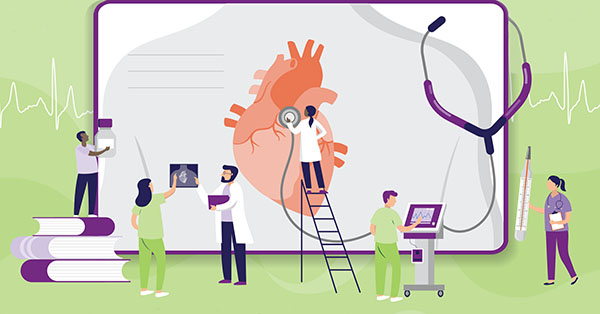 Diagnosing and treating microvascular heart disease
Diagnosing and treating microvascular heart disease
Heart disease comes in many forms. A case in point: coronary microvascular disease (MVD), sometimes called small artery disease.
MVD differs from coronary artery disease (CAD)—the most common type of heart disease—in which the arteries in the heart become clogged with plaque (fat and cholesterol). With MVD, the tiny blood vessels that branch off major arteries are damaged with no significant plaque buildup.
“The risk factors for MVD are the same as for CAD,” says Toni Anne De Venecia, MD, a cardiologist at St. Mary Medical Center. “They include diabetes, smoking, high blood pressure, high cholesterol and a sedentary lifestyle.”
MVD also occurs more often in women, especially younger women, than in men.
Chest pain without heart blockages
People with MVD can have the same symptoms as those with coronary heart disease, such as chest pain (angina) and shortness of breath. MVD patients may have an abnormal heart stress test. But when they have more extensive tests—typically a coronary angiogram—doctors do not usually see blockages in their heart. And yet they still have symptoms of coronary heart disease, says Dr. De Venecia.
Left untreated, MVD can continue to cause angina and raise the risk of major cardiac events, like heart attack and stroke.
“It has the same prognosis as for a person who has heart disease,” Dr. De Venecia says.
That’s why diagnosing MVD accurately is important. St. Mary Medical Center now has the technology to do that.
Specialists use a device, called CoroFlow, in the hospital’s cardiac catheterization laboratory, or cath lab. This device measures circulation in the smallest blood vessels of the heart so that doctors can confirm or rule out MVD.
If you do have MVD, there are treatment options that can help you avoid chest pain and reduce your risk of future heart problems. Among other steps, your cardiologist may recommend medicines to treat angina attacks and control heart disease risk factors like high blood pressure and high cholesterol.
If you have chest pain but have been told that you do not have blockages in your heart, you may want to ask a cardiologist if you could have MVD.
